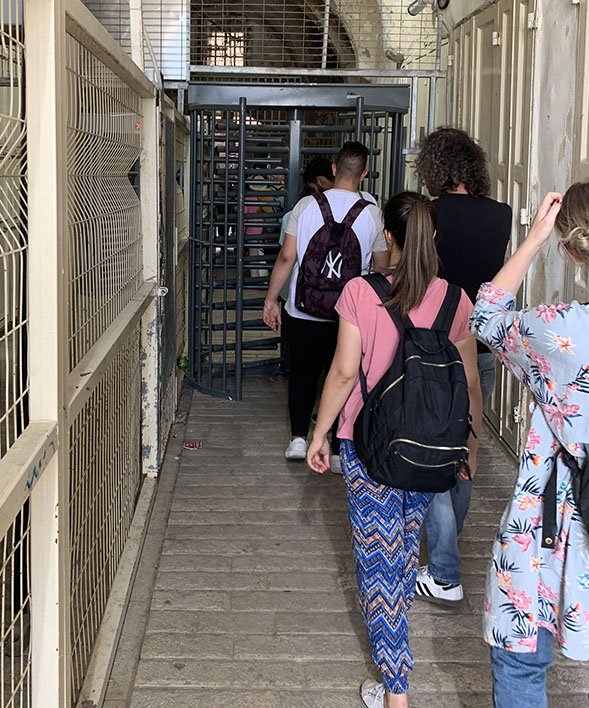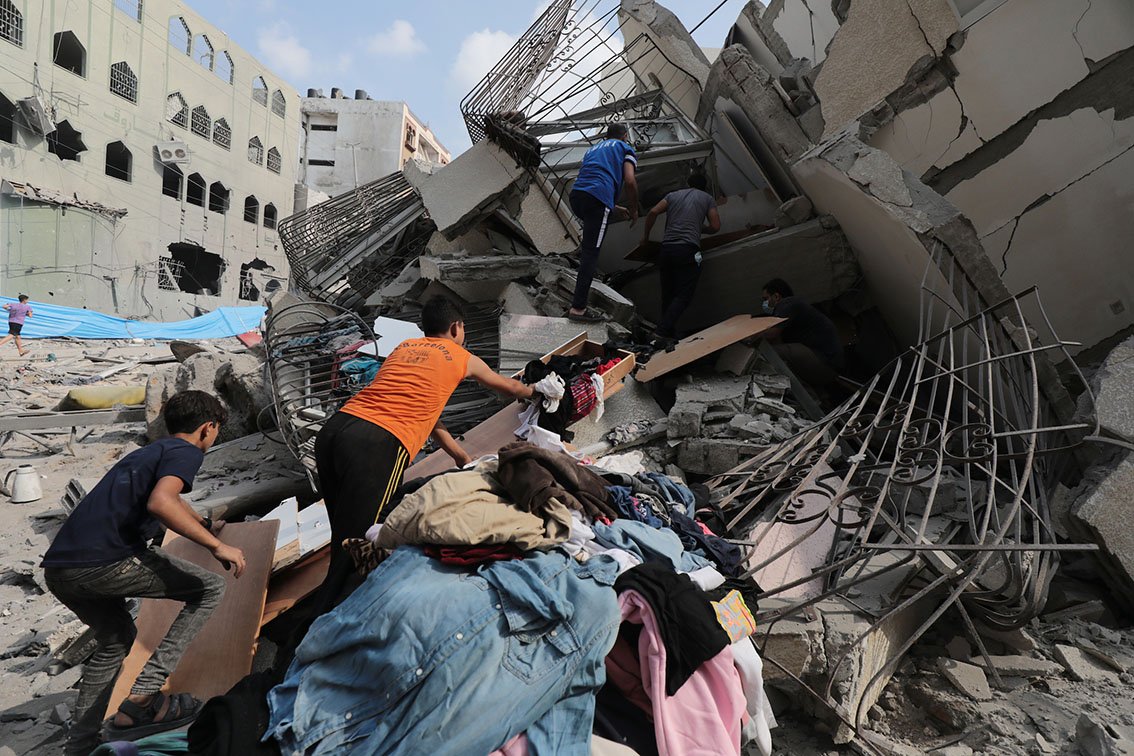Olive Harvest Under Threat in the West Bank
November 2023
The Hamas-Israel war means the eyes of the world are on Gaza, but the conflict is having devastating consequences for Palestinians in the West Bank too - including threatening the vital olive harvest. Rowena, Embrace’s Church Relationships Manager, explains:
“See you at the airport!” As the Zoom call finished, I felt the stirrings of excitement. In just over a week we would be catching the plane from Luton to Tel Aviv. We would be a party of 18, and when joined by our international friends, 70 total. We would be meeting Palestinian olive farmers near Bethlehem in the West Bank, listening to their stories, eating together and helping them harvest their small symbols of hope in their land. In doing this we would be making a statement to the world about our solidarity with the Palestinians there who are having their land grabbed by armed Israeli settlers.
That was the afternoon of 6th October and the final Zoom call to prepare for our olive picking trip with the East Jerusalem YMCA.
Just a few hours later, everything changed.
Participants on the 2022 Olive Harvest Trip.
We have all been horrified and devastated by the violence that has been occurring in Israel and Gaza. I have seen images in the past few weeks that will stay with me forever – a mother holding her tiny child’s body for the last time, a small boy trembling with shock as he describes how he was sleeping when the bomb hit, a young girl realising she has lost her sight as a result of an airstrike. A global news network photographing my friend in Gaza standing amongst the grieving families of the 17 people who lost their lives at the bombing of St. Porphyrius Church. These are our friends; our brothers and sisters; our family.
While the world’s eyes are on Gaza, the situation in the West Bank and Jerusalem is also worsening. Our friends there, as well as experiencing distress at the bombing and loss of life of thousands of their Palestinian brothers and sisters in Gaza, are also witnessing violence, and experiencing their own fear and uncertainty.
All across the West Bank our partners have had to adapt their activities due to the fragile security situation and the movement restrictions that have been imposed. You can continue to keep up-to-date with our partners’ news on our Updates Page.
Increased violence and movement restrictions in the West Bank
Many checkpoints and roads in the West Bank remain closed, severely restricting movements.
According to the UN, in the four weeks since 7th October, over 120 Palestinians have been killed in the West Bank by Israeli settlers and the Israeli Defence Forces, including at least 28 children - the highest ever monthly total since the UN began keeping records in 2005.
Israeli military raids and operations, including sniper attacks, continue in the Palestinian cities of Jenin, Nablus, and Hebron, villages near Israeli settlements, and Palestinian refugee camps. Friends there have informed us that raids, which happened roughly weekly, now occur every night, with multiple arrests happening every time, often seemingly random. The total number of Palestinians arrested in the West Bank in the four weeks since 7th October is over 1,800.
Many children in the West Bank now don’t feel safe in their homes. One mother in Jenin has reported children subconsciously sleeping with their hands up – due to the recent incursions in which Israeli soldiers barge into homes and demand all family members to put their hands in the air and surrender.
Economic Consequences - Vital Olive Harvest Under Threat
Closures, strikes, and many people staying at home due to fear has meant that almost all sectors of society have been affected. The economy is nearly collapsing, with Palestinians not being able to enter Israel from the West Bank to work, and many day-workers no longer able to find work and earn money.
The farmers served by the East Jerusalem YMCA’s olive picking programme, have also been hugely affected.
Usually, farmers need special permits from the Israeli government to access their land (which is often in a different part of the West Bank to where they live) and to be able to harvest their olives. With many checkpoints and roads remaining closed, they are unable to do this, nor can they take their olives to the olive presses to extract the oil, or export this oil to other countries. Many of the farmers rely on their olive harvest for their main income.
Picking olives next to an Israeli settlement, 2022
I have a vivid memory of last year, when we were olive picking in a field which was directly next to an Israeli settlement, separated from it only by a wire fence. This year, with the increase in violence, farmers are not able to harvest their olives, especially in a group or with a vehicle, as it would draw too much attention from settlers.
A couple of weeks ago, The Times UK reported that a 17-year-old Palestinian boy had been shot by an Israeli settler while picking olives. Sadly, this is not a rare occurrence. There have also been instances of farmers picking olives, only to have them stolen by Israeli settlers.
Keeping Hope Alive
One of our friends and colleagues at the YMCA told us, “a lot of Palestinian farmers depend on the olive harvest and now they are alone in this”. But the tagline of the olive picking programme is “Keep Hope Alive” and even in this most difficult of times, this is what they continue to do. The YMCA continue to offer advice and support to the farmers, including warning them if they hear of settler attacks nearby or a change in the situation. “We are doing everything we can to help them.”
For the approximately 70 olive picking participants (the highest number since the pandemic), there was understandably much disappointment at not being able to show their solidarity in person, but they have been praying, donating olive trees, and taking action in their communities.
We continue to stand with them, showing our support and solidarity from afar and helping “keep hope alive”. The YMCA, like all of our partners, are continuing to show resilience, even though there is still much uncertainty about the consequences of the current situation.
SPONSOR AN OLIVE TREE
One way you can help support Palestinian farmers by sponsoring an olive tree.







